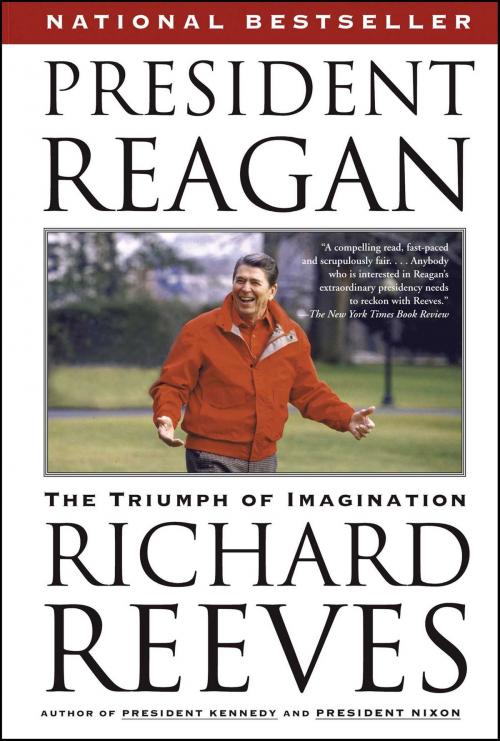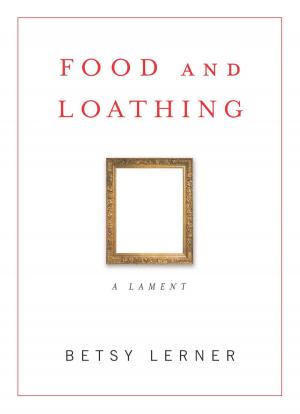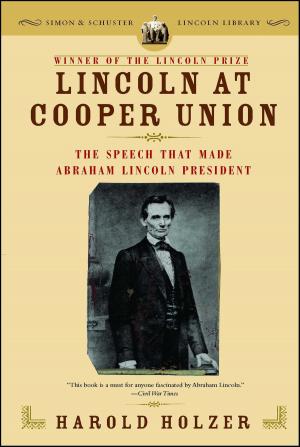President Reagan
The Triumph of Imagination
Nonfiction, History, Americas, United States, 20th Century, Biography & Memoir, Political| Author: | Richard Reeves | ISBN: | 9780743282307 |
| Publisher: | Simon & Schuster | Publication: | December 23, 2005 |
| Imprint: | Simon & Schuster | Language: | English |
| Author: | Richard Reeves |
| ISBN: | 9780743282307 |
| Publisher: | Simon & Schuster |
| Publication: | December 23, 2005 |
| Imprint: | Simon & Schuster |
| Language: | English |
Twenty-five years after Ronald Reagan became president, Richard Reeves has written a surprising and revealing portrait of one of the most important leaders of the twentieth century. As he did in his bestselling books President Kennedy: Profile of Power and President Nixon: Alone in the White House, Reeves has used newly declassified documents and hundreds of interviews to show a president at work day by day, sometimes minute by minute.
President Reagan: The Triumph of Imagination is the story of an accomplished politician, a bold, even reckless leader, a gambler, a man who imagined an American past and an American future -- and made them real. He is a man of ideas who changed the world for better or worse, a man who understands that words are often more important than deeds. Reeves shows a man who understands how to be President, who knows that the job is not to manage the government but to lead the nation. In many ways, a quarter of a century later, he is still leading. As his vice president, George H. W. Bush, said after Reagan was shot and hospitalized in 1981: "We will act as if he were here."
He is a heroic figure if not always a hero. He did not destroy communism, as his champions claim, but he knew it would self-destruct and hastened the collapse. No small thing. He believed the Soviet Union was evil and he had contempt for the established American policies of containment and détente. Asked about his own Cold War strategy, he answered: "We win. They lose!"
Like one of his heroes, Franklin D. Roosevelt, he has become larger than life. As Roosevelt became an icon central to American liberalism, Reagan became the nucleus holding together American conservatism. He is the only president whose name became a political creed, a noun not an adjective: "Reaganism."
Reagan's ideas were so old they seemed new. He preached an individualism, inspiring and cruel, that isolated and shamed the halt and the lame. He dumbed-down America, brilliantly blending fact and fiction, transforming political debate into emotion-driven entertainment. He recklessly mortgaged America with uncontrolled military spending, less taxation, and more debt.
In focusing on the key moments of the Reagan presidency, Reeves recounts the amazing resiliency of Ronald Reagan, the real "comeback kid." Here is a seventy-year-old man coming back from a near-fatal gunshot wound, from cancer, from the worst recession in American history. Then, in personal despair as his administration was shredded by the lying and secrets of hidden wars and double-dealing, he was able to forge one of history's amazing relationships with the leader of "the Evil Empire." That story is told for the first time using the transcripts of the Reagan-Gorbachev meetings, the climax of an epic story -- as if he were here.
Twenty-five years after Ronald Reagan became president, Richard Reeves has written a surprising and revealing portrait of one of the most important leaders of the twentieth century. As he did in his bestselling books President Kennedy: Profile of Power and President Nixon: Alone in the White House, Reeves has used newly declassified documents and hundreds of interviews to show a president at work day by day, sometimes minute by minute.
President Reagan: The Triumph of Imagination is the story of an accomplished politician, a bold, even reckless leader, a gambler, a man who imagined an American past and an American future -- and made them real. He is a man of ideas who changed the world for better or worse, a man who understands that words are often more important than deeds. Reeves shows a man who understands how to be President, who knows that the job is not to manage the government but to lead the nation. In many ways, a quarter of a century later, he is still leading. As his vice president, George H. W. Bush, said after Reagan was shot and hospitalized in 1981: "We will act as if he were here."
He is a heroic figure if not always a hero. He did not destroy communism, as his champions claim, but he knew it would self-destruct and hastened the collapse. No small thing. He believed the Soviet Union was evil and he had contempt for the established American policies of containment and détente. Asked about his own Cold War strategy, he answered: "We win. They lose!"
Like one of his heroes, Franklin D. Roosevelt, he has become larger than life. As Roosevelt became an icon central to American liberalism, Reagan became the nucleus holding together American conservatism. He is the only president whose name became a political creed, a noun not an adjective: "Reaganism."
Reagan's ideas were so old they seemed new. He preached an individualism, inspiring and cruel, that isolated and shamed the halt and the lame. He dumbed-down America, brilliantly blending fact and fiction, transforming political debate into emotion-driven entertainment. He recklessly mortgaged America with uncontrolled military spending, less taxation, and more debt.
In focusing on the key moments of the Reagan presidency, Reeves recounts the amazing resiliency of Ronald Reagan, the real "comeback kid." Here is a seventy-year-old man coming back from a near-fatal gunshot wound, from cancer, from the worst recession in American history. Then, in personal despair as his administration was shredded by the lying and secrets of hidden wars and double-dealing, he was able to forge one of history's amazing relationships with the leader of "the Evil Empire." That story is told for the first time using the transcripts of the Reagan-Gorbachev meetings, the climax of an epic story -- as if he were here.















